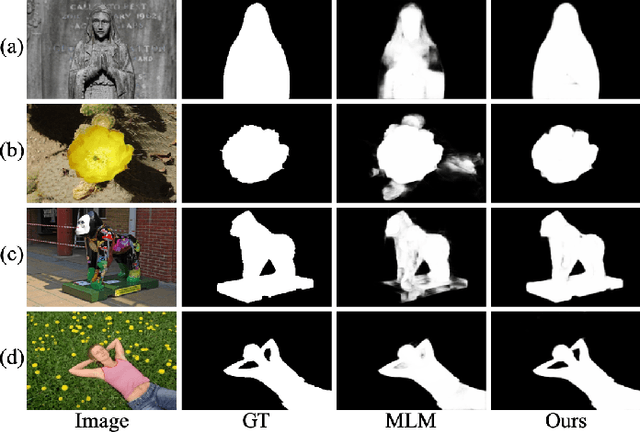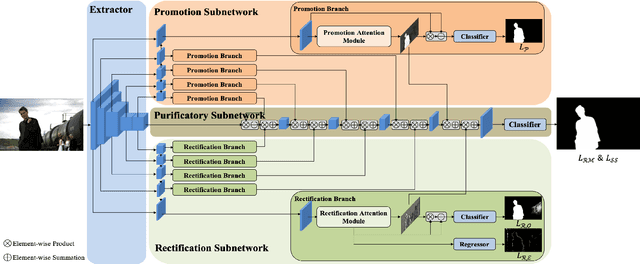Salient Object Detection with Purificatory Mechanism and Structural Similarity Loss
Paper and Code
Dec 18, 2019



By the aid of attention mechanisms to weight the image features adaptively, recent advanced deep learning-based salient object detection models encourage the predicted results to approximate the ground-truth masks with as large predictable areas as possible. However, these methods do not pay enough attention to small areas prone to misprediction. In this way, it is still tough to accurately locate salient objects due to the existence of regions with indistinguishable foreground and background and regions with complex or fine structures. To address these problems, we propose a novel network with purificatory mechanism and structural similarity loss. Specifically, in order to better locate preliminary salient objects, we first introduce the promotion attention, which is based on spatial and channel attention mechanisms to promote attention to salient regions. Subsequently, for the purpose of restoring the indistinguishable regions that can be regarded as error-prone regions of one model, we propose the rectification attention, which is learned from the areas of wrong prediction and guide the network to focus on error-prone regions thus rectifying errors. Through these two attentions, we use the Purificatory Mechanism to impose strict weights with different regions of the whole salient objects and purify results from hard-to-distinguish regions, thus accurately predicting the locations and details of salient objects. In addition to paying different attention to these hard-to-distinguish regions, we also consider the structural constraints on complex regions and propose the Structural Similarity Loss. The proposed loss models the region-level pair-wise relationship between regions to assist these regions to calibrate their own saliency values. In experiments, the proposed approach efficiently outperforms 19 state-of-the-art methods on six datasets with a notable margin.
 Add to Chrome
Add to Chrome Add to Firefox
Add to Firefox Add to Edge
Add to Edge